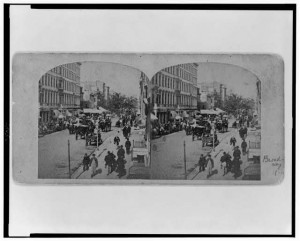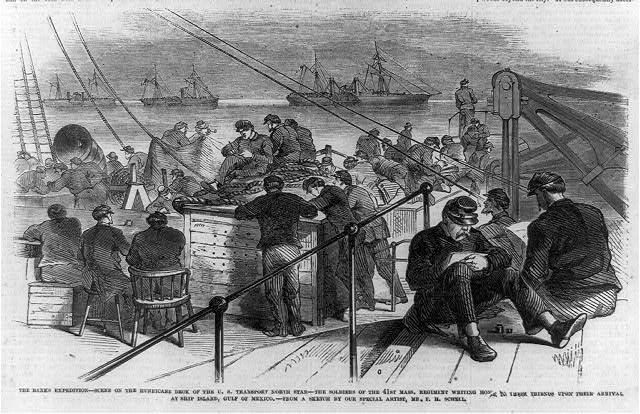New recruits from Buffalo cause havoc on a troop train; another member of an “old’ regiments dies by disease.
These two quick articles were printed consecutively in the same column in a Seneca County, New York newspaper in November 1862:
Departure of the Auburn Regiment.
The 160th Regiment, Col. DWIGHT, left Auburn on Tuesday afternoon for New York, where it will be attached to Gen. BANK’s command. Previous to the departure of the Regiment considerable dfficulty broke out among the men in the Buffalo company. On the way to [S]yracuse one of the men assaulted a Lieutenant, who drew his revolver and shot the soldier in the side. His wound is not considered dangerous. Many of the men were in a beastly state of intoxication upon the departure of the Regiment.
Lieut. JAMES GRAY and the men he recruited here are attached to Col. DWIGHT’s Regiment.
____________________________________________
Death of Thomas Murphy.
We regret to be under the necessity of stating that Thomas Murphy, a member of the Waterloo Company in the 33d Regiment, died about a week since. His connections here do not know what his disease was, but from several circumstances, know that his illness must have been brief. Mr. Murphy leaves a wife and six small children, to whom his death is a serious loss. Almost every dollar of his pay was devoted to his family.
The evils of war are terrible enough when they remove from us our young unmarried men, but they are greatly aggravated when they remove the parent of a numerous family.
Waterloo Observer.
_____________________________________________________
The 160th New York Infantry Regiment was mustered in at New York City on November 21, 1862. Its first assignment was with Nathaniel Banks’ army in the Department of the Gulf:
In November 1862 he was asked to organize a force of thirty thousand new recruits, drawn from New York and New England. As a former governor of Massachusetts, he was politically connected to the governors of these states, and the recruitment effort was successful. In December he sailed from New York with a this large force of raw recruits to replace Maj. Gen. Benjamin Butler at New Orleans, Louisiana, as commander of the Department of the Gulf.
Charles Chauncey Dwight was a New York State judge after the war.



